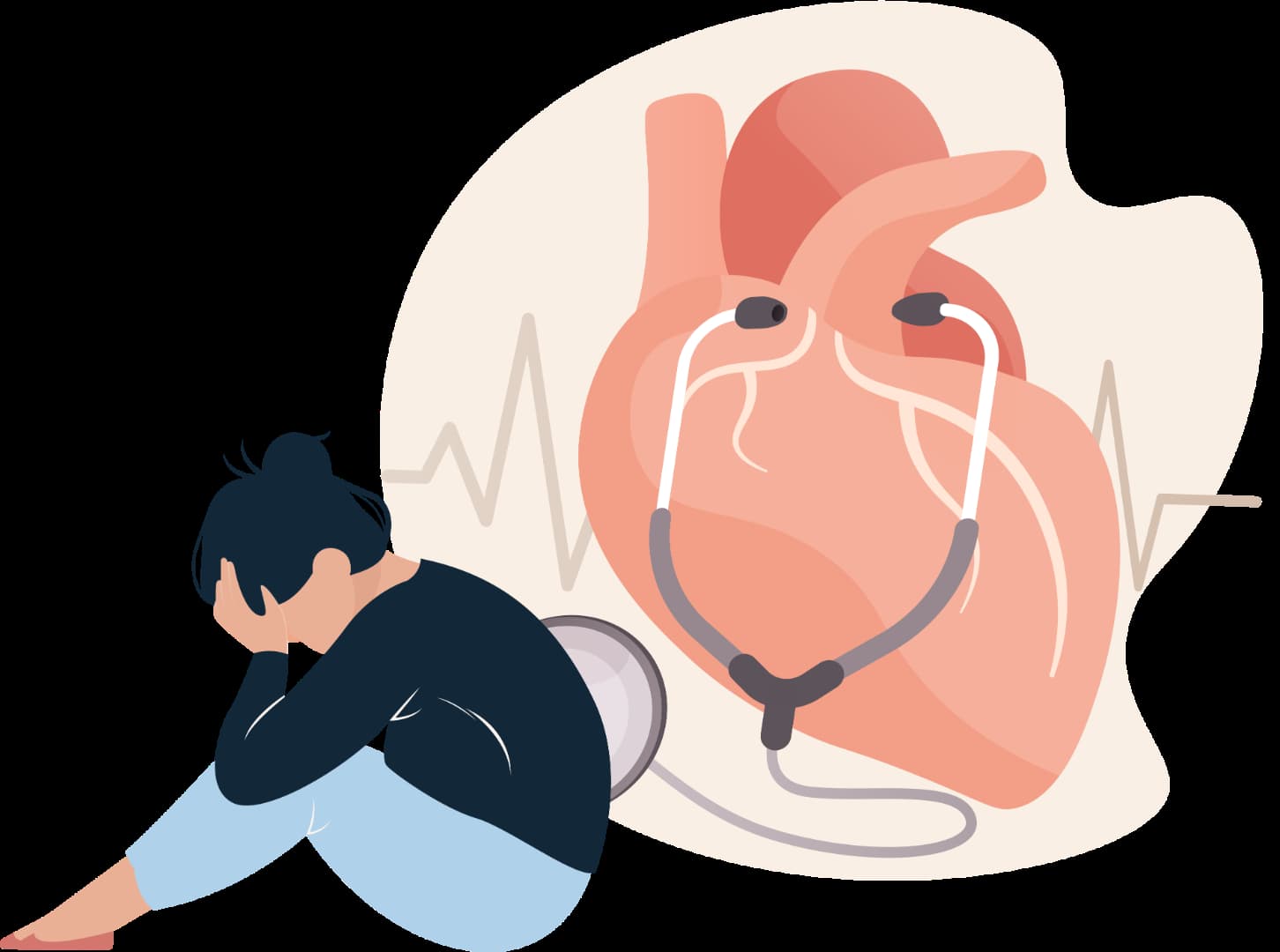This article has been compiled by Vaibhavi Kodnani, a content writer at Proactive For Her.
Blood pressure refers to the pressure of the blood exerted on the walls of the blood vessels of the arteries when the heart pumps blood into your body. When this blood pressure is higher than the usual readings of 120/80 mm Hg, it is known as high blood pressure or hypertension.
Symptoms of hypertension
There are no direct symptoms of hypertension, making it one of the leading causes of premature deaths worldwide. Hence, regular checkups are the only way to confirm hypertension. However, when hypertension becomes severe, people can experience symptoms such as:
- Severe headache
- Breathing problems
- Nosebleed
- Severe anxiety
- Nausea and vomiting
- Shortness of breath
- Lethargy and confusion
- Pulsating sensations in the neck or head
Complications of hypertension
Hypertension can put you at risk of many life-threatening conditions that include:
- Heart attack
- Stroke
- Heart failure
- Kidney disease
- Vision loss
- Metabolic syndrome
- Dementia
- Memory issues or trouble with understanding
Hypertension management
Hypertension is a serious long-term medical condition that needs to be controlled and managed with a regimen that includes three aspects:
- Antihypertensive drugs
- Diet modifications
- Lifestyle changes
While medications can help hypertension management, they can have their share of side effects with long term use like any other medications. It may not be possible to escape the side effects. Still, if you notice any, make sure to inform your doctor about it.
Hypertension medications and their side effects
Here are 7 classes of antihypertensives that lower blood pressure. All of them include a set of possible side effects.
1. Diuretics
Diuretics help flush out extra water and salt from the body through your urine. Thus, the amount of fluid flowing through the blood vessels reduces and lowers the blood pressure.
Possible side effects of diuretics:
- Decrease in the mineral potassium, causing weakness, leg cramps and fatigue
- Intense and sudden foot pain, a symptom of gout
- Gout attacks (rare)
- Increase in blood sugar levels for people with diabetes
2. Beta-blockers
Beta-blockers lower the heart rate and reduce the force at which blood pumps around your body.
Possible side effects of beta-blockers:
- Insomnia
- Cold hands and feet
- Tiredness
- Depression
- Asthma symptoms
Side effects in pregnancy:
- Beta-blockers cross the placenta and potentially can cause physiological changes in the foetus. It may also cause bradycardia and hypoglycemia in the neonate.
3. Angiotensin-Converting Enzyme (ACE) Inhibitors
Angiotensin II is a protein hormone that causes the blood vessels to become narrower, thus increasing the blood pressure. ACE inhibitors prevent the production of this hormone, and help manage high blood pressure.
Possible side effects of ACE inhibitors:
- Skin rashes
- Loss of taste
- Dry cough
- Kidney damage
Side effects in pregnancy:
ACE inhibitors are known to be harmful to the mother and the baby. It can cause low blood pressure, kidney failure, potassium excess (hyperkalemia), and even neonatal mortality.
4. Angiotensin II receptor blockers (ARBs)
Angiotensin II receptor blockers keep the blood vessels open, thus decreasing the blood pressure. Your heart does not have to force itself to work harder to pump the blood in the body.
Possible side effects of ARBs:
- Dizziness
- Less absorption of calcium
Side effects in pregnancy:
- ARBs can lead to kidney failure, lung dysplasia, cranial hypoplasia, limb contractures, and foetal or neonatal death.
5. Calcium channel blockers
Due to calcium, the heart and arteries contract more strongly. So, calcium channel blockers block the calcium from entering the smooth muscle cells of the heart and arteries. Doing this relaxes the blood vessels and reduces the heart rate, automatically stabilising the blood pressure.
Possible side effects of calcium channel blockers:
- Heart palpitations
- Swollen ankles
- Constipation
- Headache
- Dizziness
6. Alpha-blockers
A hormone called norepinephrine tightens the muscles in the walls of smaller arteries and veins. Alpha-blockers inhibit this from happening and the blood vessels remain open and relaxed. Thus, it reduces blood pressure.
Possible side effects of alpha-blockers:
- Faster heart rate
- Dizziness, lightheadedness, or weakness when suddenly standing up due to the drop in blood pressure
7. Vasodilators
Vasodilators relax the muscle in the walls of blood vessels, thus allowing the vessels to widen. It makes it easier for blood to flow through the vessels and reduces blood pressure.
Possible side effects of vasodilators:
- Headache
- Swelling around the eyes
- Heart palpitations
- Joint pain
- Fluid retention
- Excessive hair growth
Conclusion
You can be prepared beforehand if you are aware of the side effects of hypertension medications. If these side effects are too bothersome, inform your doctor about it. Do not take any decisions on your own. Your doctor will provide you with the necessary assistance that may include a change in dosage, change in medication, or side effects management tips.

